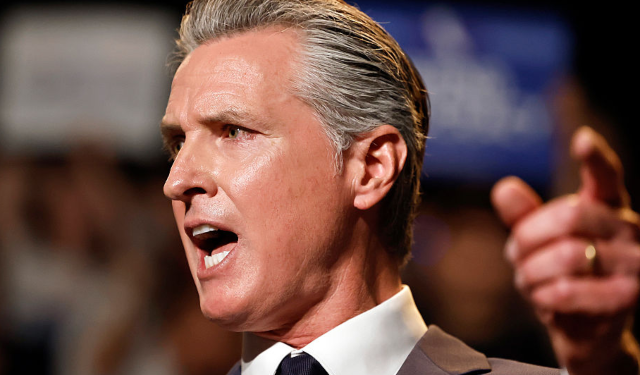The Dallas shooting at an ICE facility was ugly and stark — not because it came out of nowhere, but because it landed in a climate of demonizing rhetoric that treats law enforcement as villains instead of civil servants. FBI Director Kash Patel put it plainly: “While the investigation is ongoing, an initial review of the evidence shows an ideological motive behind this attack. One of the unspent shell casings recovered was engraved with the phrase ‘ANTI ICE.’ More updates will be forthcoming.” That detail — a bullet marked with a political slogan — should make every responsible official pause before they normalize language that encourages violence.
From a conservative perspective, there are three things to keep in mind. First, the rule of law matters. Immigration enforcement is not a partisan hobby; it’s a federal duty authorized by Congress and carried out by people who put themselves at risk to enforce the law. When those people are painted as irredeemably evil, it erodes public respect for institutions that keep communities safe. Second, words have consequences. Political leaders set the tone. If the public conversation treats enforcement officers as modern-day villains, some unstable actor will treat that as a license. FBI Director Patel warned that “these despicable, politically motivated attacks against law enforcement are not a one-off,” noting a pattern of attacks on ICE facilities in recent months. That pattern should prompt a sober re-evaluation of how we debate policy — robust disagreement is healthy, but demonizing a workforce invites violence and undermines public safety.
Third, this is ultimately a national-security and public-safety problem. Open borders, lax enforcement, and mixed messaging about immigration policies have already strained communities and local resources. But targeting the officers charged with upholding the law turns policy disagreement into personal danger. Conservatives who care about national security and civic order should be first in calling out reckless rhetoric that crosses the line from protest to incitement. As FBI Director Patel put it, “It has to end and the FBI and our partners will lead these investigative efforts to see to it that those who target our law enforcement are pursued and brought to the fullest extent of justice.”
We also have to be honest about the political backdrop. High-profile comments from public figures have hardened the narrative against ICE and immigration enforcement. Rep. Jasmine Crockett (D-TX) — representing a region that was the site of this attack — said on MSNBC, “So, listen, if we want to figure out how we are going to be safer, we probably need people that have actual intelligence and will actually pay attention to data and facts and go from there. But what they’re doing right now, it almost feels like, you know, I’ve seen the memes about the purge and all these things, but as somebody who understands history, when I see ICE, I see slave patrols. Now, I never lived through the slave patrol period. But if you know the history of policing in this country, then you understand that they were born out of slave patrols.” Words like that don’t exist in a vacuum; they provide a frame that some listeners will interpret as a moral justification for violence.
Likewise, fractious commentary from governors and other prominent figures amplifies the problem. As one recent primetime exchange put it, “Masked men jumping out of unmarked cars, people disappearing… ‘is authoritarianism hyperbolic?’ Bullsh*t we’re being hyperbolic.” That blunt language — and the theater around it — may register with an audience as righteous alarmism, but it also narrows the space for reasonable debate on policy and enforcement and risks normalizing violent reaction as a response.
That is not to say disagreements over policy are illegitimate. Conservatives have long argued that border control, enforcement, and orderly immigration serve national security, economic stability, and the rule of law. The right response to policies one dislikes is to debate them, litigate them, and, where needed, change them through elections and legislation — not to encourage or justify attacks on the men and women who are carrying out judicially and legislatively authorized duties. The remedy for policies perceived as misguided is more democracy and better governance, not violence.
Practical steps follow naturally from this analysis. Political leaders should be called on — across the aisle — to moderate language that inflames. Lawmakers and prosecutors should make clear that attacks on officers and federal facilities will be prosecuted to the fullest extent. Communities should support robust witness protection and family-safety measures for officers who face doxxing or threats. And newsrooms and platforms should resist amplifying dehumanizing rhetoric that contributes to radicalization.
Finally, conservatives should not shrink from the cultural side of this problem. We champion individual responsibility and civic virtue; that includes insisting on accountability by public figures and a political culture that prizes debate over demonization. The Dallas shooter’s engraved casing is a grim symbol of where things can go when political anger is weaponized. That moment should prod elected officials and civic leaders of all stripes to dial down incendiary talk and recommit to lawful, measured discourse. We must defend the right to disagree vigorously while making clear that violent acts are never an acceptable instrument of political change.





















AMERICA REMEMBER THE TYRANTS DEMOCRATS AND LIBERALS AND PROGRESSIVES ARE THE PROBLEM THEY STARTED WITH THIS INSANITY IN AMERICA 🇺🇸